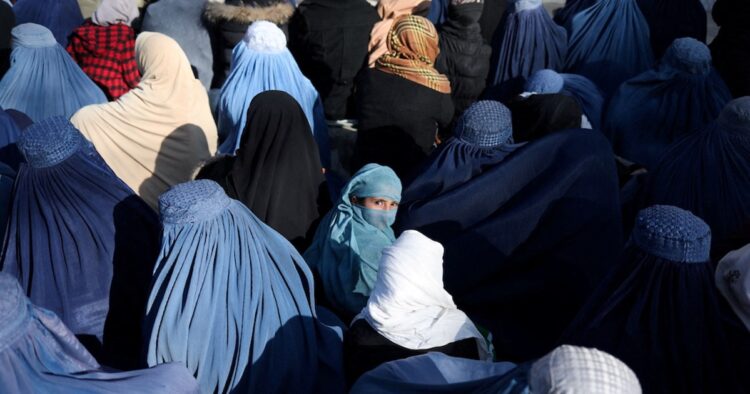The United Nations (U.N.) is facing criticism for not including Afghan women in an upcoming meeting between the Taliban and envoys from 22 countries. U.N. special envoy Roza Otunbayeva explained that the meeting will still address women’s rights, even though no Afghan women will be present. Human rights groups, including Human Rights Watch and Amnesty International, have strongly criticized this decision.
The meeting will take place in Doha, Qatar, on June 30 and July 1. It is the third U.N.-sponsored meeting about the Afghan crisis. The Taliban, who took over Afghanistan in 2021 after U.S. and NATO forces withdrew, are not recognized as the official government by any country due to their strict bans on female education and employment.
Otunbayeva, a former president and foreign minister of Kyrgyzstan, stated that the U.N. was not pressured into excluding Afghan women from the meeting. She confirmed that while no Afghan women will attend, some of the 22 special envoys who are women will be present. The meeting, chaired by U.N. political chief Rosemary DiCarlo, aims to address critical issues like business, banking, and counter-narcotics policy.
The Taliban’s de facto Foreign Minister, Amir Khan Muttaqi, is invited and expected to lead their delegation. The Taliban had set conditions for previous meetings, which included excluding Afghan civil society members and demanding recognition as Afghanistan’s legitimate rulers. However, a hybrid meeting with Afghan civil society representatives will be held just before the main gathering.
The Taliban have enforced severe restrictions on women, banning girls from education beyond age 11 and excluding women from public spaces and many jobs. Otunbayeva emphasized that the meeting would push the Taliban to understand the importance of involving women in various aspects of society and business.
The U.N. also aims to discuss humanitarian concerns and the impact of climate change on Afghanistan, where over half the population needs humanitarian aid. Lisa Doughten from the U.N. humanitarian office highlighted that Afghanistan has experienced severe weather changes, increasing the frequency of droughts and floods.
ALSO READ: “Hinduja Family Appeals Swiss Court Ruling on Jail Terms, Expresses Disappointment”
The U.N. hopes to continue dialogues in future meetings, with a focus on helping Afghan farmers replace opium crops, providing medication for addiction, and improving crime prevention and banking. The ultimate goal is to convince the Taliban to allow girls to return to school, which remains a significant challenge in the male-dominated society of Afghanistan.
Afghanistan is the only country in the 57-nation Organization of Islamic Cooperation that does not allow girls to attend school. This ban has led to a rise in child marriages and early pregnancies, with severe physical and emotional consequences. There are also reports of increasing suicide attempts among women and girls due to the oppressive conditions.
The upcoming U.N. meeting in Doha is a critical step in addressing the multifaceted crisis in Afghanistan, despite the controversy over the exclusion of Afghan women. The U.N. remains committed to advocating for women’s rights and addressing urgent humanitarian and climate issues in the country.

















Comments